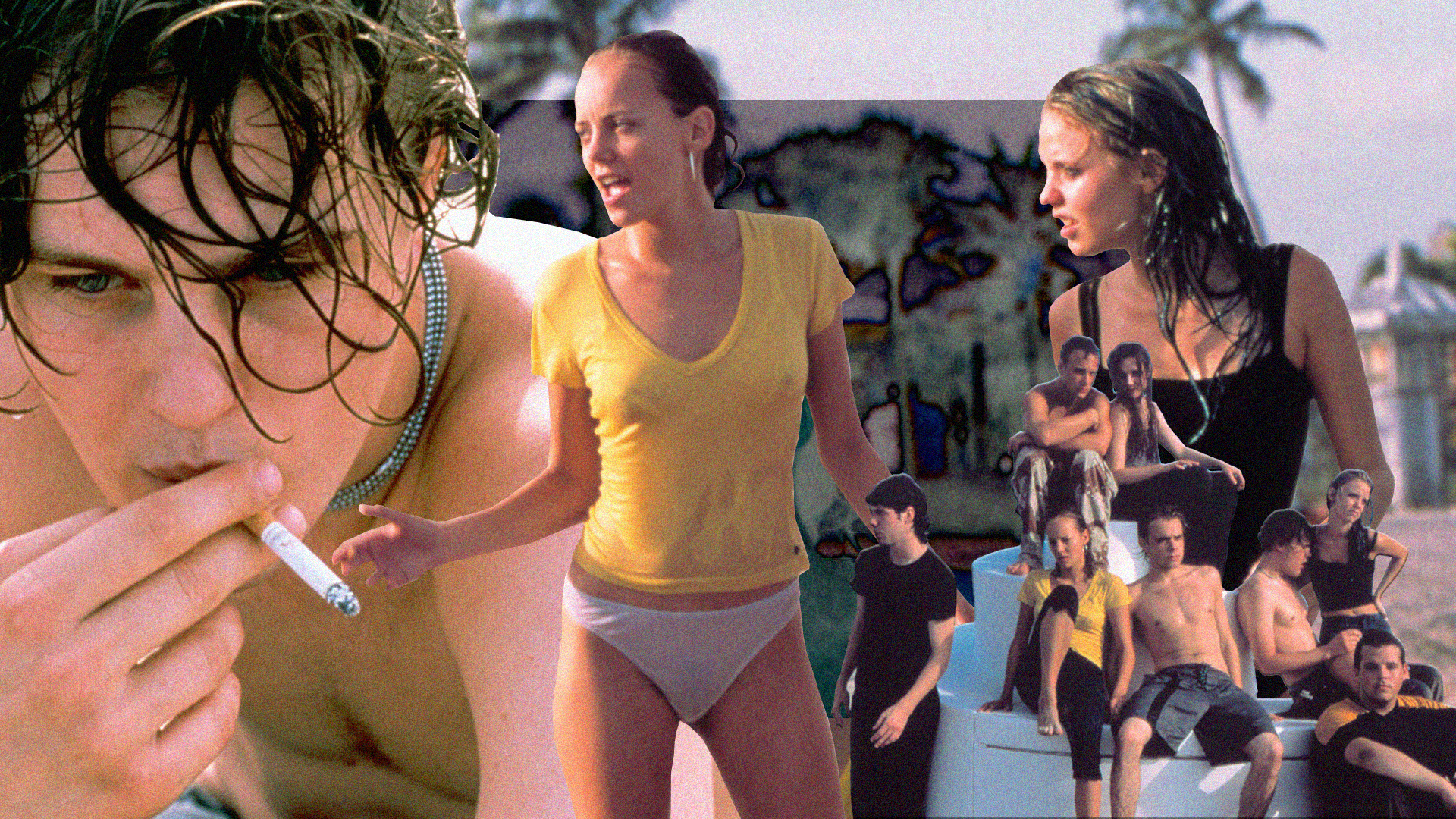This piece is comprised of conversations conducted with members of Bully’s cast and crew individually, that have been condensed and edited together for clarity.
In the summer of 2000, on the eve of production for Larry Clark’s movie Bully, the movie’s lead actor, teen heartthrob Brad Renfro, climbed out of the window of his Fort Lauderdale motel room to go party with the locals. When the cast and crew arrived to set the next morning, Renfro was nowhere to be seen.
“He got fucked up and stole a yacht,” Larry Clark recollects, speaking via phone from his Paris apartment. A drunk Renfro had managed to hot wire the stolen vessel, but forgot to untie it. When he accelerated the engine, the yacht bashed up against the dock. The owners called the police, who arrested him. “I got him out of jail and took him straight to set, where he had a scene to do, and he just did it,” says Clark. “And it was great.”
Bully, Clark’s adaptation of the best-selling true crime novel of the same name by Jim Schutze, was filmed on a shoestring budget in just 23 days. The movie, which depicts the murder of adolescent Bobby Kent at the hands of seven of his peers, including childhood best friend Marty Puccio, was shot at many of the locations where the real-life incidents occurred. But it was mired in production trouble from the onset. Several drafts of the screenplay had been written, all of which Clark tore up in favour of shooting straight from the book, which featured real court testimonies and first-hand accounts of the murder.
In 1995, Clark had a massive hit with Kids, but his follow-up, Another Day in Paradise, was mangled by studio heads, and severely underperformed at the box office. In effect, the relationship between Clark and Hollywood was mutually strained; the success of Bully would spell out his future in the industry.
Renfro was to play Puccio. He’d beaten out rising stars Jake Gyllenhaal and Ashton Kutcher for the part, and was the most famous of the cast, which consisted of fellow teen idols Nick Stahl and Michael Pitt, as well as rising stars Bijou Phillips, Rachel Miner, Leo Fitzpatrick, and newcomers Kelli Garner and Daniel Franzese.
Twenty years ago, Clark — with a small crew and a pool of young Hollywood’s rising, risen, and about-to-fall — spent just over three feverish weeks filming what would become the iconoclast’s definitive treatise on adolescent apathy and angst. Against a backdrop of sex, drugs, and Dr. Dre, this was the making of Bully.
The murder
Summers in South Florida are a specific kind of killer. Ask Marty Puccio and his friends. On the night of 14 July 1993, 20-year old Puccio convinced his childhood best friend, Bobby Kent, to meet him at a construction site some 20 miles from their homes in Broward County. As far as Kent knew, he was going to spend the night burning off some steam drag-racing with Puccio and his new high-school-aged girlfriend, Lisa Connelly. However, galvanised by months spent watching Marty suffer physical, psychological, and sexual abuse by his best friend, Connelly had something else in store for Kent that night. After a week spent conspiring at a local Pizza Hut, Connelly, Puccio, and five of their friends, who were either tangentially connected or merely bored and looking for something to do, killed Bobby Kent with a knife.
Steve Gainer, cinematographer: One day [a mutual friend called up and said] “Larry Clark has this movie coming up, Bully. Would you like to read the script?” He said, “Larry doesn’t want to use any make up, he wants to shoot it in Florida, where it really happened, he wants the kids to be sweaty and greasy, and he wants it to be handheld.” I called Larry and, never being one to turn down breakfast, he agreed to meet me. So he’s eating his eggs, and he goes, “How do you see the movie?” And I go, “Really gritty. Really sweaty and no make up and handheld,” and he started choking, and he goes, “Fuck! That’s exactly how I see it!”
Larry Clark, director: We didn’t have a lot of money.
Carmen Cuba, casting director: Bully wasn’t like Euphoria or Generation or We Are Who We Are [all of which Cuba later casted]. There was definitely less oversight. There was also no internet, so I had to go to skateparks and backyards to watch backyard wrestling, and meet someone who could connect me to one person who could connect me to another person. These were skater kids, and it was such a different time. Nowadays, everyone’s used to Instagram and performing for their social media. Back then, there wasn’t the same kind of awareness about performance. These guys were not looking to be famous.
Clark: I wanted to cast Nick Stahl, which I got a lot of heat over.
Nick Stahl, Bobby Kent: At the same time Bully came around, I also got offered a psychological thriller starring Andy Garcia. I knew immediately that I wanted to do Bully. This was not good news for my agent and manager. I remember them arguing with me, and saying, “You’re turning down Andy Garcia!” So Andy flew me to Canada to try to talk me into doing this movie, but I ended up sticking to Bully.
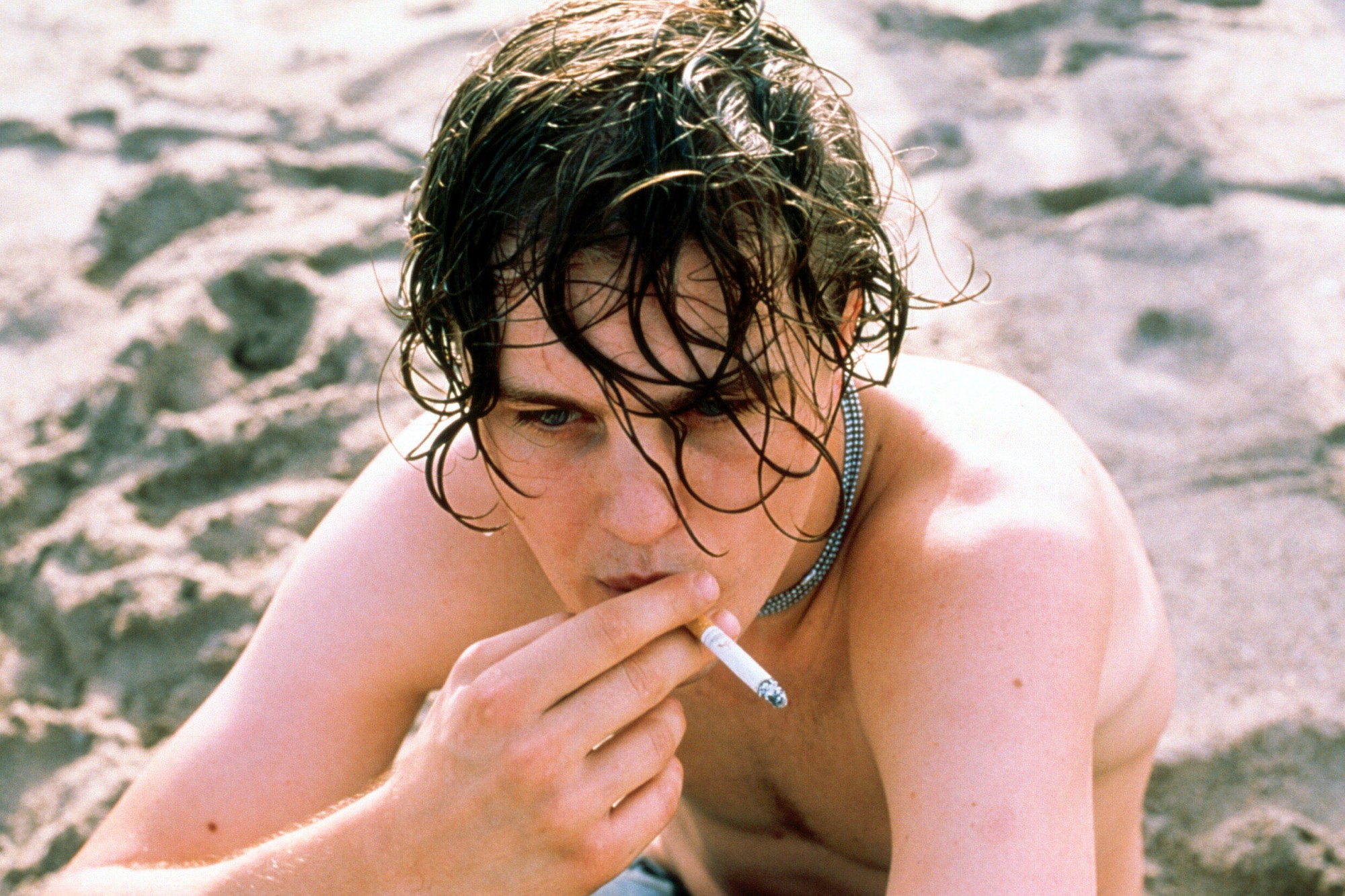
Cuba: Brad was a big deal at the time, so when we got him for Bobby Kent, we cast around him. At some point, Brad declared that he wanted to play Marty Puccio. It felt natural for him and Nick to play opposite parts, but then Larry really embraced the idea. The idea of who is a bully and who gets bullied — in this case, it felt unusual to make the choice this way, but that made it more interesting and more layered.
Stahl: From the very beginning, I felt like I was miscast in the role. Not to say Brad was a bully or anything, but I thought the roles were kind of flip-flopped. If you drew the polar opposite of who I was at that time, it would probably be Bobby Kent. I mean, I was rail thin. I’d worked out twice before the movie started, so clearly it wasn’t any kind of physicality that intrigued Larry.
Cuba: For the role of Lisa, we wanted an innocent quality. At the time, Rachel Miner was married to Macaulay Culkin.
Rachel Miner, Lisa Connelly: Before Bully, I quit acting for a while. I had a very public marriage and it was hard for me to process being in the public eye. We separated not long before shooting, so that was a turbulent time. Actually, Larry kindly worked it out so I could go to Florida a little early to get out of the lens, literally.
Cuba: It was at a bar that I found Daniel Franzese.
Daniel Franzese, Derek Dzvirko: When Carmen was scouting locations for the club scene, there was a talent show happening that night, and I was singing in it. I didn’t win, so I got a little drunk, because I used to try to win to pay my rent. When I got introduced to Larry by Carmen, I kind of fangirled over him a bit, and he hated me. When I went in to audition, Carmen was like, “Larry doesn’t like you, so when you go in, just pretend to be the character.” I didn’t know he really, truly liked me until after the movie.
Leo Fitzpatrick, Derek Kaufman: I remember they wanted Jared Leto to play my part, and Larry was like, “No, it’s gotta be Leo. Leo is in all of my movies.” So I had to audition for it. I had to show Larry that I could be intimidating, so I had to get in his face and shit.
Miner: I was nervous as heck. Right before I did Bully, I had been teaching two year olds. I literally had midnight fears of, like, “What if a parent sees this?”
Kelli Garner, Heather Swallers: I had just started acting, and I’d just done The Architecture of Reassurance for Mike Mills, and he had dyed my hair blue, and I also had these, like, clear braces on my teeth. I think Larry was very obsessed or attracted to how I looked in that film. He was originally interested in me for a smaller role, as the Pizza Hut girl, and I was like, “No, I don’t want to do that role. I’ll do this film if I get to play Heather.”
Fitzpatrick: Where I’m from in New Jersey is where Michael Pitt [who played Donnie Semenac] is from, so I’ve known Mike since he was a little kid. We’re both from this town in West Orange, and I was a grade or two above him. Mike was always good looking, always “Mr. Cool”, and I actually didn’t like him. And then when we made the film, we became friends.
Cuba: Zooey Deschanel was going to play the Ali Willis part [that eventually went to Bijou Phillips]. She got some other movie that actually shot in Miami the same time we were there.
Clark lost 17 days of filming
Originally given 40 days to shoot, Clark had already lost 10 of those before production on Bully commenced. Upon his arrival to set, Lionsgate informed Clark that, due to budget constrictions, he now had just 23 days to complete filming. The compressed production schedule, tempestuous weather conditions, and behind-the-scenes drama all contributed to a chaotic set experience for the cast and crew.
Garner: I remember loving driving in that silver Mustang [that Phillips’ character drives in the film], having it hitched to the back of a car — because we really couldn’t be driving that in Miami — and having the sun hit my skin, and being in the car with Bijou and Danny and Michael and Rachel. It just felt like the best summer of my life. Driving through town, and having everyone yelling, “What are you shooting?” and Larry just yelling back, “A Mustang commercial!” I definitely kind of fell in love for the first time, with Michael, who was so dark and had such a different vibe than me, I had the feeling of “Soon I will be an adult” and this must be what it feels like to just have freedom and to work and to love your job.
Gainer: Was it brutal? Yeah. Was it hot? August, in fucking South Florida? But there was something magical.
Sex, drugs and kidnapping Brad Renfro
Cuba: They were all having romances — did anyone talk about the romances? That’s the part where I was like, “Are they acting? Is this real?” It all shifted to where I was like, “Wh-what? Now them?” And it all contributed to how the movie feels.
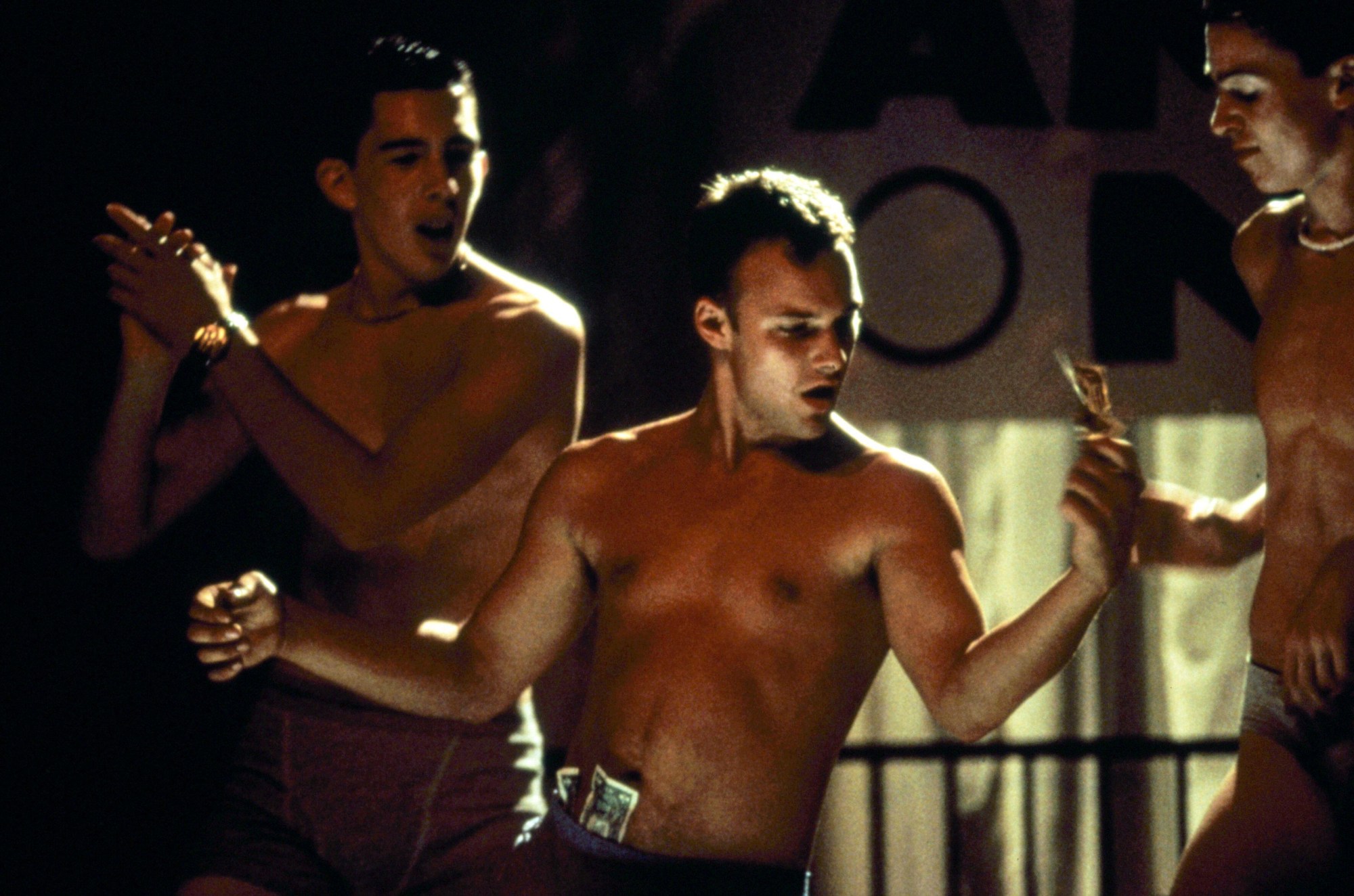
Miner: I think we all got very close. Brad and I also started seeing each other during that time.
Clark: I went down to pick Brad up from Knoxville, Tennessee [where the actor had been living in a trailer park with his grandmother] a day after his 18th birthday, because he had to be 18 to shoot the film. I drove up to his front door and he came out with blood dripping down both of his arms. He’d been shooting cocaine. He was all loaded up. He looked terrible. So I stayed with him for about three days. The next morning, I said, “Where’s a place to get some coffee, like a Starbucks or something?” And he got in the car, and I just drove to Florida. I kidnapped him and drove us to the shoot. He was kicking [his habit] in my car, and then he’d fall asleep, then wake up and kick, then fall asleep. I eventually got him down to Florida and made him work out so he lost weight. It was tough. Really, really tough.
Gainer: We stayed at a hotel. There was a big, U-shaped run of the rooms and in the center was a pool. We had barbecues and Larry had a really big-ass place and we would set up tables there and they would do read throughs. There was one moment, when Brad tried to escape to go party [again], and his [parole officer] caught him. They came into a rehearsal and Larry wringed Renfro’s neck, lifted him up, and shook him and said, “You’re not gonna fuck my movie!” He had his feet off the ground.
Stahl: It was frantic. It was chaotic. We were all young kids, getting high and showing up to work to varying degrees of sobriety. I would be stoned, trying to do scenes, and people would be getting into fights, and Larry and Brad would be at each other, and Brad and Bijou would be at each other. There was just a lot of drama.
Cuba: The whole thing was just bananas. It was this microcosm of young people who were all figuring it out and playing these challenging parts in this challenging thing and having interpersonal dynamics with each other.
Garner: I saw actors come to work high off their fucking heads with saucer eyes, or, you know, screaming. It was traumatising in some aspects because I came from such a small town and such a good family that I just wasn’t exposed to any of that prior to stepping onto that set. So it was a lot of trying to figure out, “Why is that person’s eyes so big today? Why is that person coming to set late?” I just didn’t get it.
Fitzpatrick: Everybody was just partying and having sex with each other and it was very exciting, but I was kind of older, so I wasn’t privy to that.
Franzese: There was a hierarchy. Like, Bijou’s dad was famous.
“Being naked was like a rite of passage on set”
Clark: I never saw dailies, because we had no time for it. I never saw anything until we were in the editing room.
Gainer: We had a gigantic storm coming. Every afternoon in southern Florida, you have these black clouds rolling in and you get thunder and lightning. So we’re 10 minutes out from this storm hitting and we’ve got this four page dialogue scene. So I said to Larry, “Let me get in the centre of this circle of people, and what I’ll do is try to spin, and hit each one of them on their line.” We shot it three or four times. When I went to the New Beverly Cinema [Quentin Tarantino’s LA-based repertory theatre] to watch the movie, during that sequence, a bunch of old people got up and walked out of the theatre.
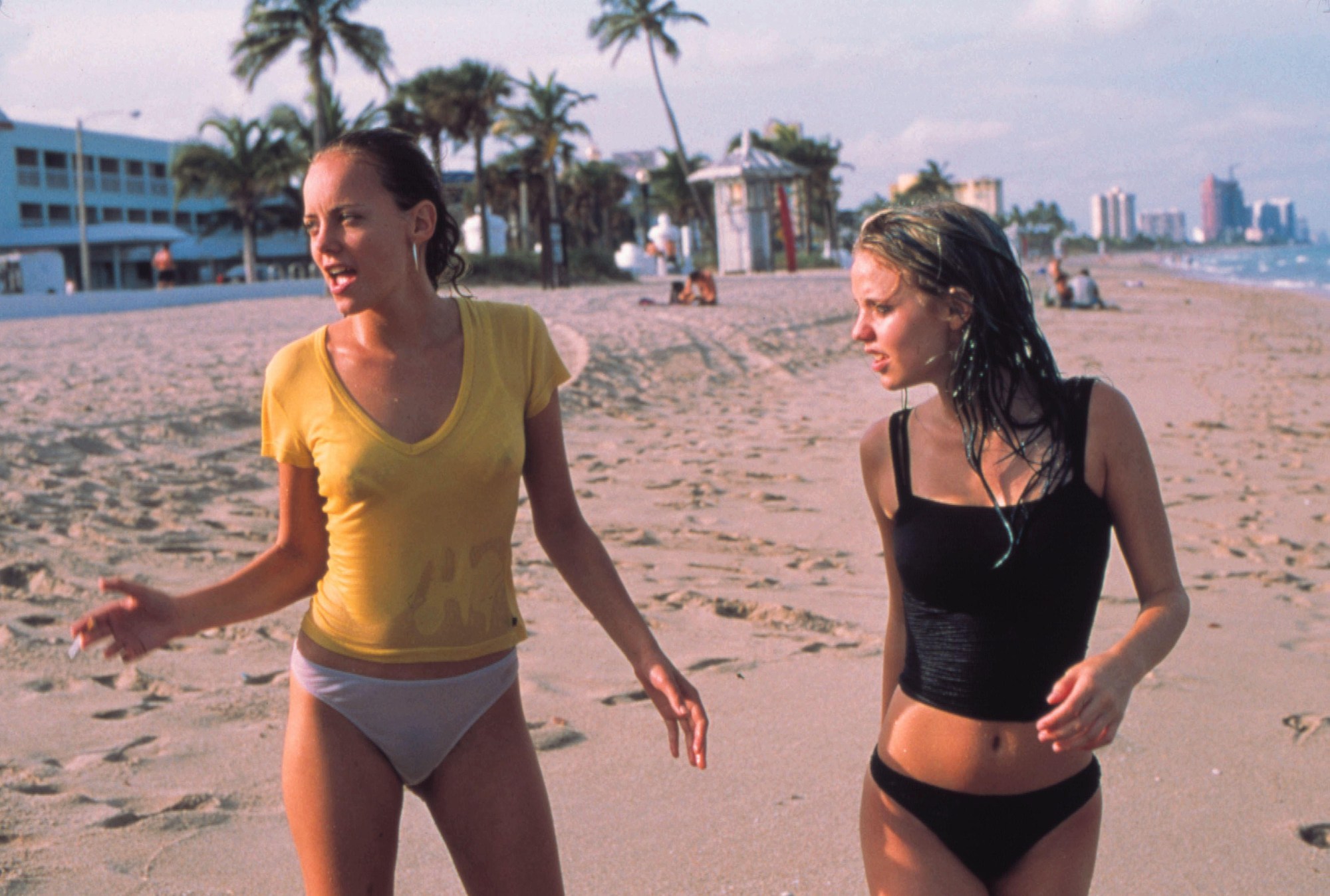
Howard Parr, soundtrack supervisor: There was no real music budget for this. It was like $5,000. Larry really wanted to use “Forgot About Dre” by Dr. Dre and Eminem, and that was a million dollar song. My friend managed to get the video rights to it, but not the music rights. Fortunately, Eminem was a big Larry fan and we managed to meet with him at the MTV Movie Awards. We got Eminem to sign off on it, but then we had to find Dre, and getting to Dre took like six months. He approved it, and later we had to actually go back to ask him to do it for half the amount of money, but he still did it.
Clark: The original screenwriter didn’t want to put in [that Bobby Kent was possibly gay]. He said something, like, he didn’t want a “gay-crowded film”, so he had taken all of that out, and I tried to put it back in. [In the scene where Brad Renfro strips at a gay club’s amateur night] Brad got really, really drunk to do that scene. He didn’t really want to do it, so I kind of made him do it.
Stahl: [Not explicitly portraying Bobby as gay] is one of my regrets about how I tackled that character. I chalk it up to being young. I didn’t delve as much into the psychology as I should have. If I had the chance to do that role again, I would try to serve that stuff a little deeper, because it’s a really fascinating part of that friendship dynamic that they had.
Miner: I didn’t want my character to be attractive. The real Lisa had been heavier, and I [gained weight for the role] because it kind of informs her need for power and attention. She had been dehumanised and made less because of her weight and her looks. I also wanted there to be a transition and a growth. You’ll see after the murder that she actually, disturbingly, starts wearing more form-fitting clothes as she develops a sense of power.
Cuba: Bijou brought all her own clothes and styled herself which is a big part of why I think she moved so freely. She really took charge of not only her character but of a lot of the energy of the set and the group. I hadn’t really experienced that before with someone so young.
Miner: The first time that I saw the finished film, I was ready to leave the country and go underground. Being a young woman at that time, in our culture, there was such a focus on our looks, and I made the choice to abandon that. I literally remember our producer, at one point, saying, “Do you have to look that bad?”
Stahl: I remember that I had to be naked at one point and I remember being embarrassed about that, but it was like, everybody was doing it. Different actors, at that point, were already naked. It was like a rite of passage on set. It was a very small crew, as well. It was kind of liberating because I had never done that for a film.
Miner: I don’t know that it was a joyous set experience at all times, but it shouldn’t be. Larry would also kind of step back and, if we were getting it right, he wouldn’t interfere. The nudity wasn’t totally comfortable, but that was also my own trepidation. That had nothing to do with my relationship with others and more about my relationship with myself.
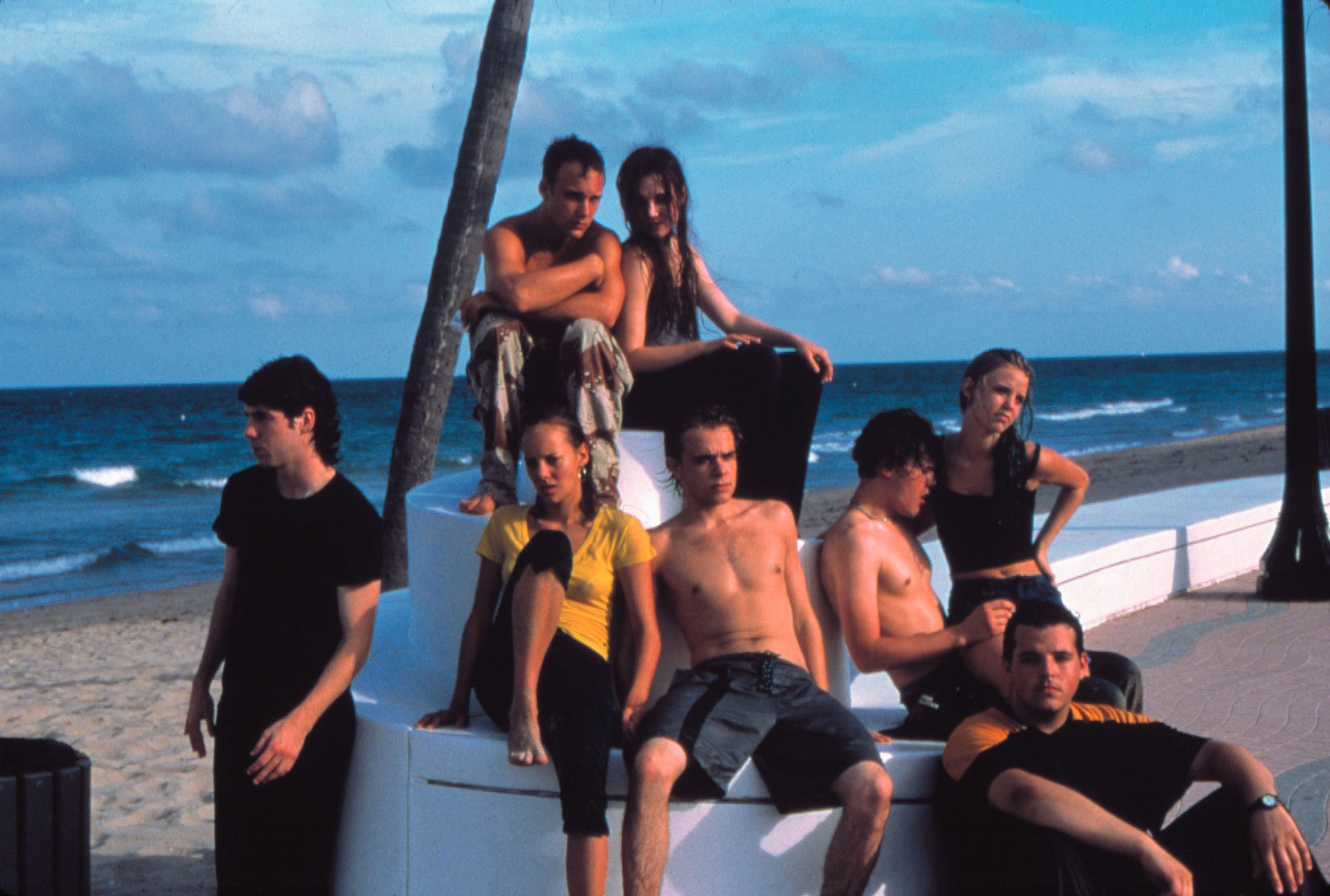
Garner: There’s a scene where there’s not any acting work — it’s just Michael Pitt and me lying in bed, sleeping. Bijou’s character is in the corner rocking a crying baby and there’s no dialogue. I remember being brought to set and put under the sheet, and it was the first time I had seen a naked male’s body, which was shocking. I’m slipped into this bed and I’m in underwear and a big T-shirt because that’s what my character is going to sleep in, but somehow my shirt comes off. I remember Bijou, who’s very comfortable with herself and her body, kind of bitching at me, yelling, “Calm down! Why are you being so nervous, take it off, everyone wants to see your tits!” I was so nervous, and sweating in that heat, and not understanding what was happening. I kind of turned into Michael, looking for protection, and action gets called, and the sheet gets ripped off of me. You can watch this scene in the movie. I cross my arms over my chest, and I’m uncomfortable, and it’s on film. And I was underage. And no one said anything. So, there are moments like that that are hard for me and that I’ve never spoken about. I was a child on set and there were multiple adults in the room and no one really said anything about how inappropriate some things were. Having to kind of hold that for yourself, so young, when in front of you is your future and your dreams… I didn’t know to ask questions, or I didn’t know how I was feeling, and so I thought, “Just fit into the system. This is your dream. This must be what real art feels like.”
“I feel nostalgic for that time…”
At 18, Brad Renfro filmed Bully. At 25, he was dead from a drug overdose.
Miner: I feel nostalgic for that time, especially with the loss of Brad. We tried to stay together for awhile, but it became too trying. It’s hard to watch someone go through that. I wish I’d been more able to get beyond my own emotional reactions and feelings and had enough information about how to be the most helpful and most there for a person. I don’t think I was there yet. That’s a hard one.
Garner: Brad, as problematic as some of his issues were for him, was such an amazing person and fiercely protective of me, and so was Michael Pitt, in regards to me hanging out with Brad.
Clark: Brad and I stayed good friends. He thought I was like a father to him, and it was really tragic what happened to him.
Franzese: There was a scene where I had to take my shirt off, and it was extremely vulnerable for me, because I had gained weight during production, on purpose, because [the producers] told me that the only reason my character would kill somebody was because he wanted to be around cool kids. So during the scene, I took my shirt off, and Bijou goes, “You’re soooo grooooss!” And I was kind of like, “Fuck this,” and walked away. And Brad ran after me and he grabbed me and he kissed me on the mouth, and was like, “Listen to me, you’re fucking beautiful, you are a terrific actor, and don’t let her ruin this for you.” I felt like at that moment I really needed a safe place and he was it for me.
Miner: Brad was a light of a human being. He had his own battles and that was painful to him and painful to all of us around, but I don’t want that to colour what people take away because he was also this incredibly empathetic, genuine, creative, really bright person that showed up with his whole heart, all the time. He had a huge heart and he really brought it to whatever he did. I think there’s something to be said about our society, and hopefully we’re improving, but it can be a really rough world. [For him] to be that empathetic and sensitive and to feel that much… I think a lot of us have different coping mechanisms, some of which are healthy and some of which aren’t. I think that as an artist, what I saw the most was how much he cared. He was really passionate and that showed through.
Filming with the locals
Andy Hafitz, editor: Jim Schutze [the author of the book, who later disowned the film] hated those kids. He hated them, and in particular, Donny, Michael’s character. And Michael just figured out a way to play this kid as relatable and with a sense of humour, this fuck-up who just wanted to get high all of the time. He was always doing something interesting in every single take. I could always cut to him.
Steve: So many of the areas that we [shot] in were the actual locations. [We had] the actual courtroom, the actual cop that was there, the apartment complex, and, super bizarrely, the guy that was the head of the film lab down there, where we ran our processing, was Marty Puccio’s father.
Fitzpatrick: Derek Dzvirko, Danny’s character, was already out of jail writing in the local newspaper about how bad the casting was and how he should at least be hired as a consultant because he was there the night of the murders. A lot of the PAs on the film went to school with the kids who did the killings. You would see a sidewalk where Bobby Kent had written his name while the cement was drying. It was still super fresh in that neighbourhood.
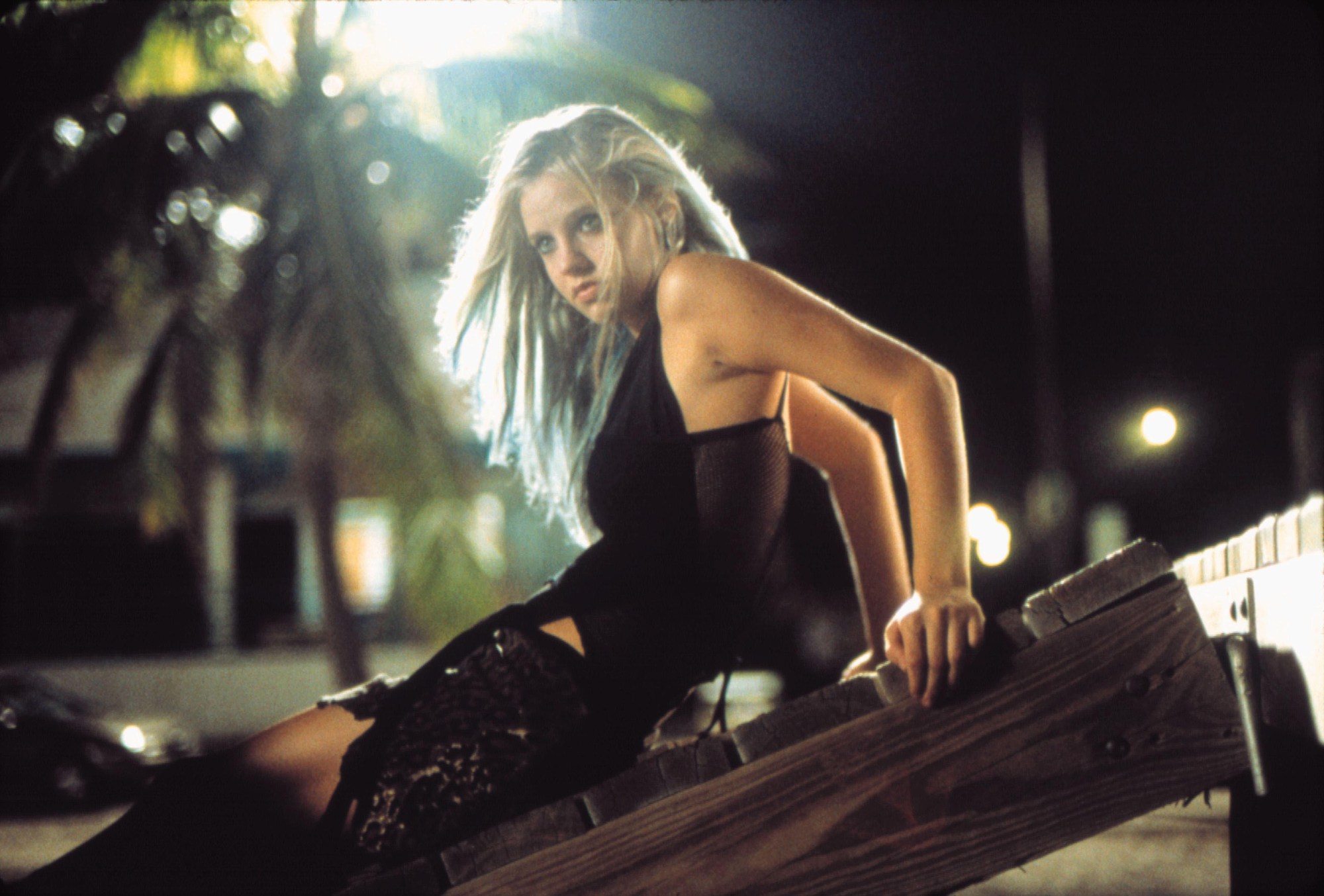
“More happens to you in three years than will happen to you in the rest of your life”
Stahl: Of all the things that I have done, people might come up to me the most about Bully, to this day.
Garner: It was wild and it was so fun and I would do it all over again. I would make the same choice, I would just have a different voice for myself. I would be able to be the adult in that room for myself to speak for myself when I couldn’t before.
Franzese: The nervousness in the performances… It’s like when you watch a soldier go through boot camp or watch a football player go through their summer trials.
Gainer: About three weeks before the release, the entire executive branch at Lionsgate got shaken up, and a whole new bunch of people took over. They put it in three theaters. So, it didn’t have a fucking chance. It played for like a weekend, and then it was gone. No push, no big advertising campaign, nothing. They let it die.
Franzese: Bully got a raw deal because Columbine happened. George Bush had put a ban on movies that were unrated being allowed to be played in theatres. Larry was so fucking mad because the MPAA wanted to give us an NC-17 rating, but since he chose to go with the movie being unrated, it only played in two theatres in LA and in New York, and then it got rolled out to eight or nine more theatres. We were supposed to have a wide release.
Clark: [When we got the NC-17 rating], I was upset. I couldn’t understand it. It was a shocking film for people. I remember the New York Times said that it was the worst movie ever made.
Cuba: Larry’s gaze on the kids, in rewatching it, feels dangerous in the way that the story itself was dangerous. I’m not sure this movie could be made, certainly not in the US, in 2021.
Stahl: Andy Garcia, by the way, lovely guy! But you’re now writing an article about the 20th anniversary of Bully, that all of these people did not want me to do, and that other movie…
Fitzpatrick: I think with Larry, the whole thing is that he believes he started taking photographs too late in life, and he kind of wishes he photographed his own puberty and that’s why he’s so obsessed with it, and the older he gets, the further away he gets from that. When he was doing [his famous 1971 photo book] Tulsa, he was always a few years older, which is why you don’t really see him in many of the photos, because he was too old to be participating. Except for the drugs. But the sex stuff, he couldn’t be in those photos because he was older than the people. He’s so obsessed with this idea that more happens to you in three years than will happen to you in the rest of your life, and I don’t think he’ll ever be satisfied. What people don’t understand is that Larry respects teenagers more than he respects adults. And for a lot of teenagers, this is the first adult who’s telling them, ‘What you’re doing is right’. That’s why kids are so comfortable around him, because he’s an adult you can trust. A lot of people have their own opinions about Larry, and I let them have those opinions, but I also try to explain, the best I can, that he is actually not exploiting these people. He’s trying to shine a light on them.
Follow i-D on Instagram and TikTok for more cult movie commentary.
